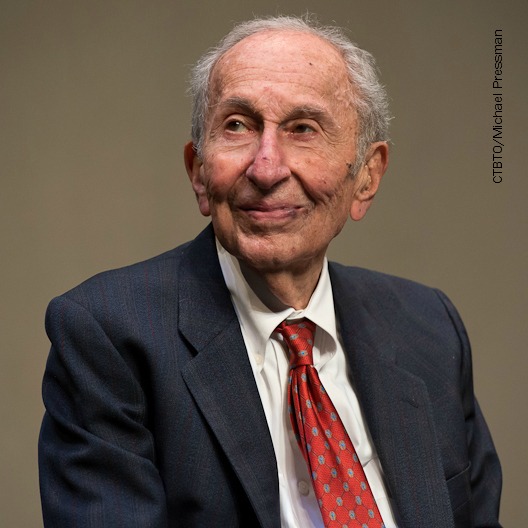The Commission on Security and Cooperation in Europe seeks candidates for its Max Kampelman Fellowship program. Named for a longtime U.S. Ambassador to the Conference on Security and Cooperation in Europe, Kampelman Fellows represent the next generation of American leaders in security policy, human rights, and strategic communications.
 Kampelman Fellows join a team of world-class experts at a US government commission that advances American national security and national interests by promoting human rights, military security, and economic cooperation in 57 countries in Europe, Eurasia, and North America.
Kampelman Fellows join a team of world-class experts at a US government commission that advances American national security and national interests by promoting human rights, military security, and economic cooperation in 57 countries in Europe, Eurasia, and North America.
Kampelman Fellowships last three months, with fellows expected to work 30 hours per week in-person at our office in Washington DC. Fellows are paid $27 per hour and are offered ongoing enrichment, professional development, and networking opportunities facilitated by senior commission staff.
Meet the current Kampelman Fellows.
Policy Fellowships
Policy fellows will work in political and military affairs, economic and environmental matters, and human rights and fundamental freedoms, based on their areas of interest, expertise, and needs of the Commission. Under the direction of commission policy advisors, policy fellows research topics and trends relating to international military, economic, and human rights issues throughout the 57-country OSCE region; assist staff advisors with hearings, briefings, congressional delegations, legislation, and publications; attend congressional hearings, panels, and events; and perform administrative duties. Each fellow is expected to write at least one article for potential publication on the commission website during his or her fellowship period.
Communications Fellowships
Communications fellows support projects and initiatives in all areas of the commission’s portfolio. Communications fellows assist with media outreach activities; help publicize Commission hearings and briefings; staff Commission events; develop web content; and craft creative and engaging content to be shared on social media. They also assist with other special communications projects and perform administrative duties. Each fellow is expected to write at least one article for publication on the commission website during his or her fellowship period.
Qualifications
The Kampelman Fellowship program is open to current or registered graduate students; applications may be accepted from recent undergraduates (the beginning of the fellowship term should be less than one year since graduation), and in exceptional circumstances, undergraduate students with previous internship experience.
All Kampelman Fellowship candidates should have a keen interest in learning more about international affairs, the inner workings of Congress, and the relationship between the legislative and executive branches in the realm of foreign policy. Proficiency in a second OSCE language is an asset.
Pursuant to Section 704 of the Consolidated Appropriations Act, 2017, Pub. L. No. 115-31 (May 5, 2017), as amended, an applicant must be one of the following: (1) a citizen of the United States; (2) a person who is lawfully admitted for permanent residence and is seeking citizenship as outlined in 8 U.S.C. 1324b(a)(3)(B); (3) a person who is admitted as a refugee under 8 U.S.C. 1157 or is granted asylum under 8 U.S.C. 1158 and has filed a declaration of intention to become a lawful permanent resident and then a citizen when eligible; or (4) a person who owes allegiance to the United States.
Policy Fellows: Applicants should demonstrate excellent writing, analysis, research, and oral presentation skills, as well as an interest in government, international relations, and human rights.
Communications Fellows: Applicants should demonstrate excellent writing and editing skills, a basic understanding of WordPress, knowledge of social media platforms, and an interest in government. Photography skills are a plus.
Please send the following application package to csce[dot]fellowships[at]mail[dot]house[dot]gov.
- Brief cover letter indicating the following:
- Why you want to work for the Commission, including relevant background or personal experiences
- Your specific areas of interest as they relate to the work of the Commission
- Your availability (start and end dates, as well as hours per week)
- Resume of no more than two pages
- Writing sample of three pages or less
- OPTIONAL FOR COMMUNICATION FELLOW APPLICANTS: Samples of your work including copywriting, graphic design, videos, and/or photography
Applicants must send materials to csce.fellowships@mail.house.gov to be considered. In the subject line of your e-mail application please put your first initial and last name, as well as indicate whether you are applying for a policy fellowship or a communications fellowship.
Only complete applications with the proper subject line received by the deadline (April 25, 2025) will be considered. Please do not contact the commission, or the offices of our commissioners, to inquire about the status of your application. Finalists will be notified if they have been selected for an interview.
Upcoming Terms and Application Deadlines
- Policy Fellowship
- Summer 2025 – Applications are open now through April 25, 2025.
- Communications Fellowship
- Summer 2025 – Applications are open now through April 25, 2025.
